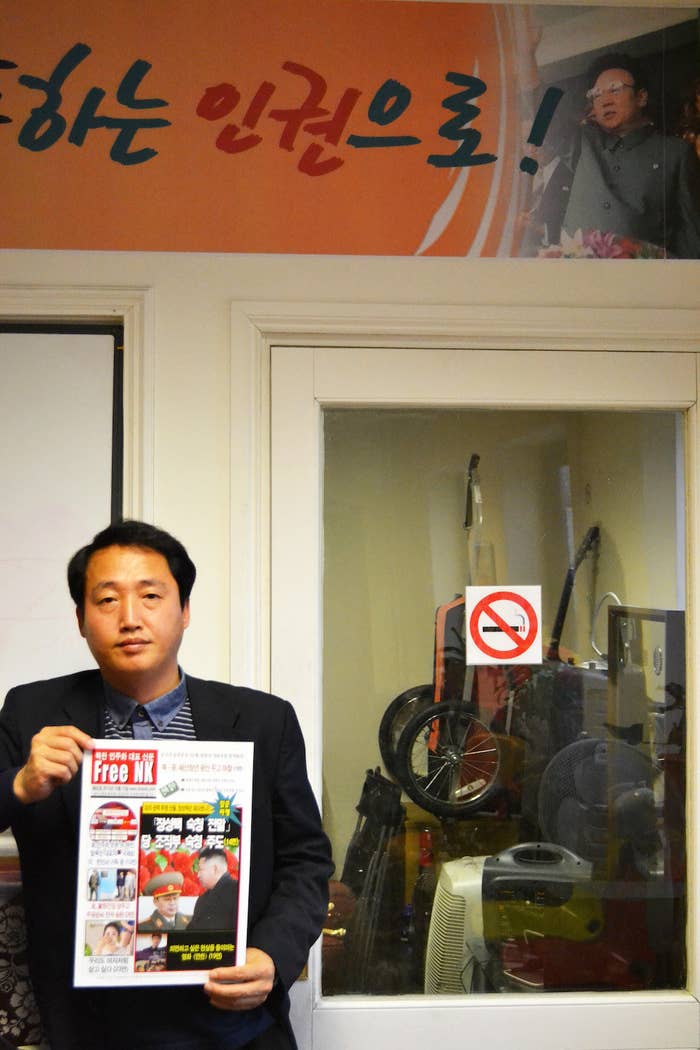
On the second floor of a building behind a Krispy Kreme doughnut shop in the London suburb of New Malden, a small team is producing Free NK, a pro-democracy North Korean newspaper.
The paper’s editor, Joo-Il Kim, has lived in the area since fleeing North Korea a decade ago, and says he loves it in the UK.
The 42-year-old’s “ideal life” has come at a cost, though. He hasn’t spoken to his family in eight years.
“I used to make contact through brokers but now I can’t find any broker who dares contact them,” he says. “My family are all being watched by the authorities.”
Kim’s story is not unique – he is one of some 600 North Koreans living in New Malden, known as “Little Pyongyang” by some. It's the largest North Korean community in Europe.
BuzzFeed News spoke to local residents with remarkable stories of escape from North Korea about why they decided to settle in a quiet corner of southwest London.
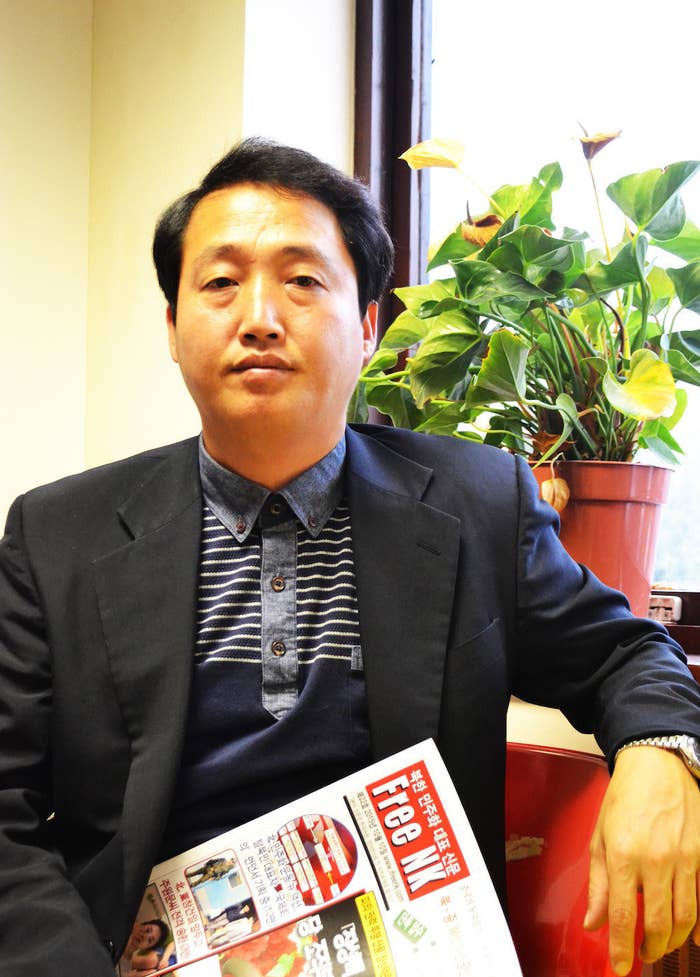
A dog-eared sign for Free NK leads into a small oblong office lined with threadbare rugs and industrious interns.
Here I meet Kim. “I'm learning a lot from the British democracy and the social and political system,” he says. “If tyranny fell in North Korea, I think it would be good if they took the British democratic system as a benchmark.”
He hasn’t always been such a fan of democracy though. While a student, Kim says, he was “brainwashed” into supporting the North Korean communist regime.
That changed during military service. “I started to doubt the reality of North Korean society,” he says. “As an officer, I was responsible for 100 soldiers, and about 30% of them were hospitalised because of famine.
“I went to many places in North Korea and saw the reality. I saw people were in extreme poverty. I started to doubt whether the North Korean government was actually working for the people. After all, if you doodle on a book of Kim Jong Il, you and your whole family can be taken to a labour camp in the middle of the night. I thought maybe if I went to another country, I could become more objective.”
Disillusioned with the regime, Kim decided to escape in 2005, armed with a knife – he was willing to cut his own throat if captured.
“I swam across the Tumen River to China on my own,” he says. “There were loads of pebbles, which make a lot of noise if you tread on them, so I used a cloth to tiptoe on the floor to reduce the sound. I set off around 11pm but when I arrived in China it was four in the morning.”
After hiding in the mountains in China, Kim eventually came into contact with an NGO worker who helped him get into Vietnam. After several near misses and arrests, he made his way into Cambodia and then Thailand, where he was able to claim British asylum.
But Kim made the journey alone. He left his whole family behind.
That was part of the reason Kim decided to set up the Free NK newspaper. “I have correspondents in North Korea who deliver the newspapers,” he says, “but we also go to South Korea and put newspapers in the balloons to fly into North Korea. In the future I want to use GPS drones as transportation. As well as looking after the paper, I participate in various North Korea human rights activities.”
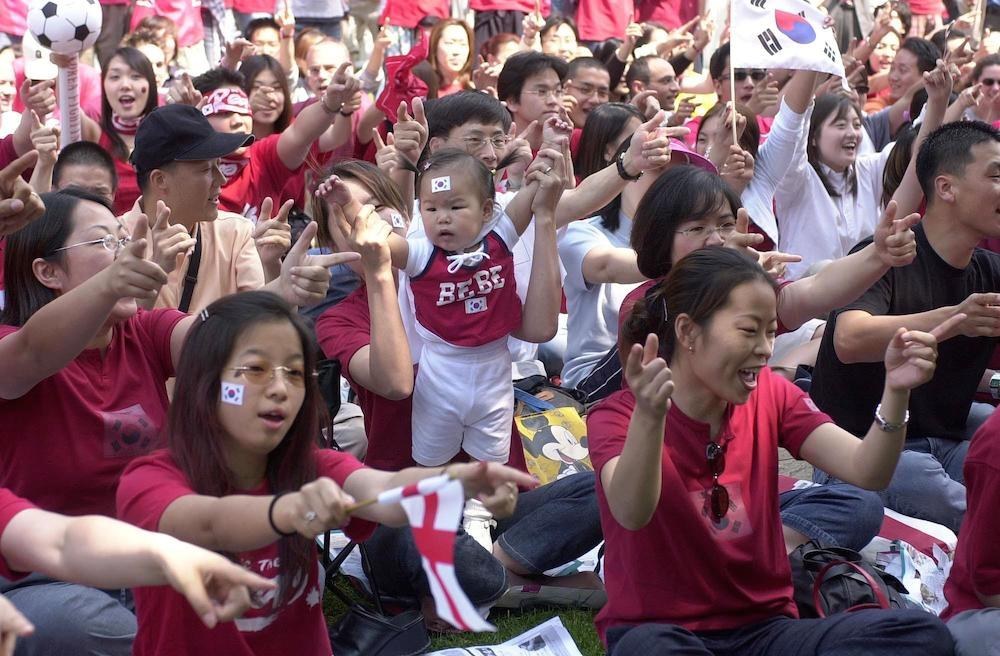
Those fleeing North Korea appear to be gravitating towards New Malden because of the large South Korean population already here – people who share the same language, culture, and history.
The area is home to 20,000 South Koreans. Attracted by cheap housing, the original South Korean embassy, Samsung’s former European HQ, and the Japanese community, South Koreans started settling here in large numbers from the 1960s. Since then, the community has continued to swell.
As such, New Malden is one of the few places in the world where North and South Koreans live peacefully. Partitioned by the Demilitarised Zone (DMZ), back home South Koreans are legally prohibited from interacting with North Koreans – even their own relatives.
New Malden itself isn’t entirely free from tensions. It is claimed that some South Koreans perceive those from North Korea as benefit frauds. Although North Koreans work in South Korean shops and restaurants in the area, they are unlikely to mingle socially with each other.
“There are shared values between North and South Korean people,” Kim says, “but there is a clear divide in New Malden.”
His friend and colleague Choi Joong-hwa agrees. “There are language barriers between North and South Koreans,” he says. “I am chair of the North Korean Residents Association so I have lots of North Korean friends and contacts.”
Set up seven years ago, the organisation helps refugees settle and adapt into their new lives in the UK. “It’s often difficult for defectors when they arrive in Britain,” Choi says. “This is mostly because of language barriers and cultural difference. I escaped with my wife and son, but we also gave birth to two daughters here in England – they speak English and are quite integrated.”
After seeing four of his brothers starve to death in the space of a couple of years, Choi, 49, finally left North Korea in 2004.
“I also swam across the Tumen River,” he says. “There was a security unit by the river, which I had to bribe. I spent five years in China before finally arriving in Liverpool in 2009. In the same year I moved to New Malden. All of my family are happy living here.”
Choi, who was formerly in the North Korean army, now has a day job at Korea Foods and also works at Free NK. “Sometimes it’s difficult for me to judge whether life in Britain is good or bad because I haven’t been anywhere else,” he says. “All I know is when I came to Britain, I had hope.”
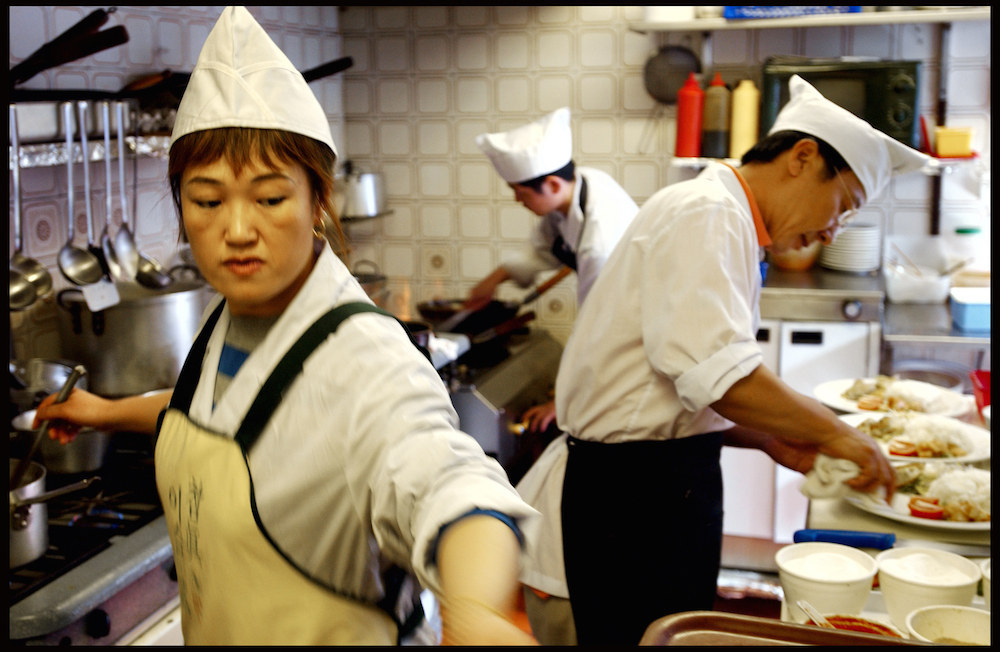
Jimin Kang, 28, has lived in New Malden for three years.
“I live on my own but my mum lives nearby so I see her a lot,” he says. “I’m very happy to live in England. It means freedom.
Kang was just 20 when he and his mother escaped from North Korea in 2007.
“I lived in the capital, Pyongyang, which is very far from the border, so it was really difficult to escape,” he says. “In North Korea, you have to ask government permission to travel.
“I had a different accent to people living near the border, so when I arrived, they knew I shouldn’t be there. The government caught me six times before I got to China. I gave them money each time I was caught. Then I paid the army so I could cross into China.”
He adds: “But China isn’t safe either. If they find you in China, they’ll send you back to North Korea. I hid in a small country village for three months and then I went to find a person smuggler who got me to England.”
One of the hardest parts of fleeing his home country was leaving his father behind, Kang says: “My father’s a famous fiction writer in Korea. I lived in a flat with him, my mother, and sister.
“I always feel sorry for my father being there alone. He can’t leave, because the government are watching him.”
Apart from one letter, Jimin has had no contact with his father: “I sent a small letter with some pictures and money a few years ago. He received it and sent back some photos. But it’s very expensive to contact people in North Korea. You have to go through a broker and it can cost up to £1,000 to talk for just a few minutes.”
When I ask Kang whether he told his friends he was planning on escaping, he laughs: “No. You can’t trust anyone in North Korea. I didn’t even tell my girlfriend. They don’t know where I am now, just that I have disappeared.”
In North Korea, Kang worked for the Kim Il Sung Young Socialists Alliance teaching Juche, the state ideology of North Korea. “It was my full-time job to teach North Korean culture and stop people doing bad things," he says, "like listening to pop music from America or watching dramas from South Korea and China.”
He saved money to pay for his escape by selling electronics on the black market, he says.
Upon arriving in England, he lived in Bolton for five years. “We called it a ghost town," he says. "Bolton was very small and we lived with Muslim people, which was new for us. But then my mum decided she wanted to be with Korean people and eat Korean food, so we moved to New Malden.”
Kang works in the nearby borough of Kingston as a sushi chef in a Japanese restaurant. “But my real dream is to be a journalist or writer,” he says.
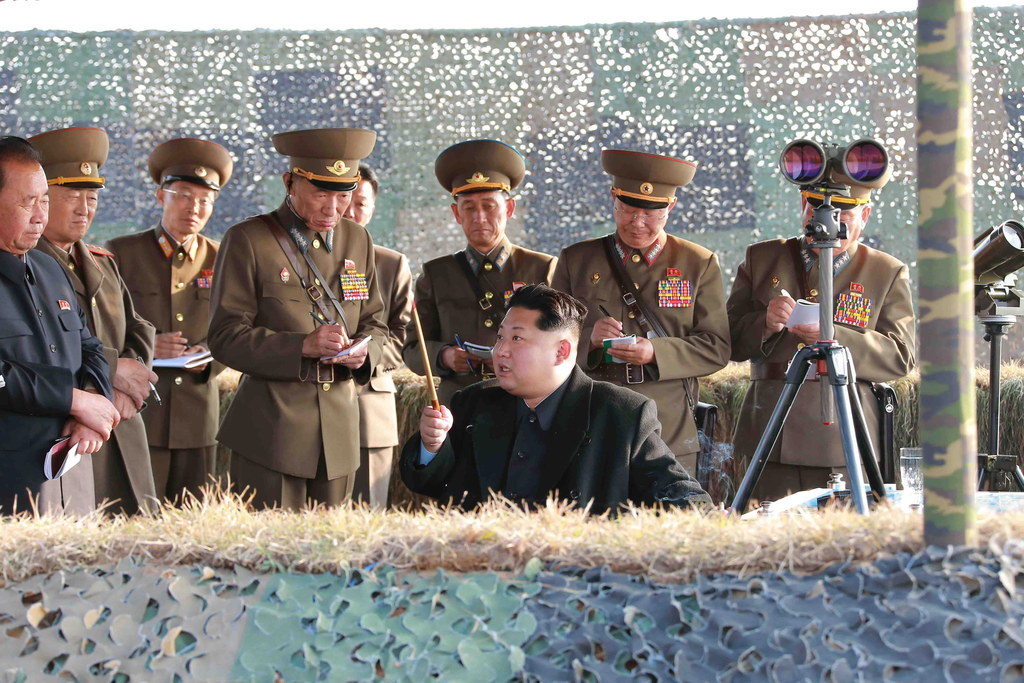
The difficulties North Koreans face when resettling in Britain are manifold. Most other refugees to the country are familiar with the English language, but often the first time North Koreans hear it is when they arrive here. Neither Kim nor Choi speak any English, despite spending a decade in Britain.
Estranged from their families and faced with such extreme language barriers, it can be particularly difficult for North Korean refugees to adapt to life in the UK.
The European Alliance for Human Rights in North Korea ran a crowdfunding campaign earlier this year to try and raise £45,000 to help refugees in New Malden. The campaign hoped to set up English language programmes, internship projects, and women’s rights workshops for refugees.
The North Koreans of New Malden today keep a low profile due to the fear that their families will be punished back home. The defectors may technically be free, but the fear and trauma of living under Kim Jong Un’s dictatorship lingers on.
Thanks to Sang Yeoup Han for translating the interviews with Joo-Il Kim and Choi Joong-hwa.
